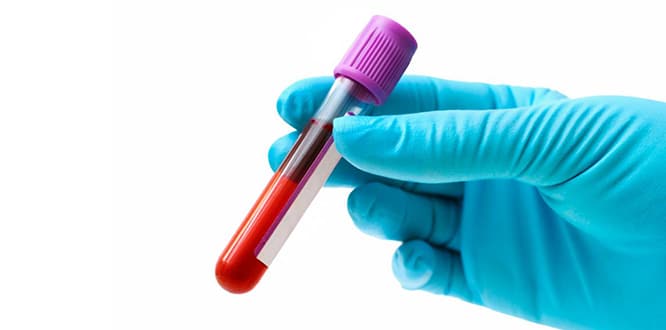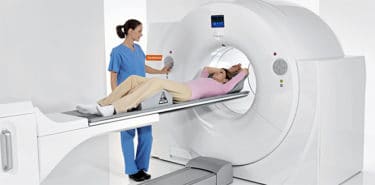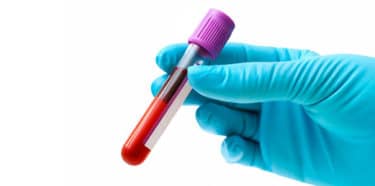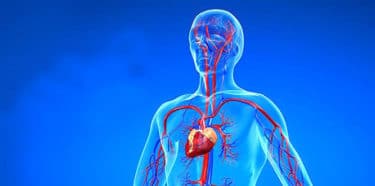Creatinine is a natural waste product formed in the body with daily muscle activities. It is filtered by the kidneys and excreted via urine. Creatinine level is an indicator of muscle mass in the body and kidney function. High levels in the blood or urine indicates a dysfunction in the kidneys. Low level of creatinine shows a decrease in the muscle mass as the body gets older or it may be caused by a temporary situation such as a pregnancy or malnutrition. Diet and physical activity play a role in regulating creatinine levels.
Table of Contents
What is creatinine?
Creatinine is a waste product in the body. It is formed from the breakdown of a compound called creatine produced by muscles. It is also known as serum (blood) creatinine; its level in blood changes depending on age, gender, and muscle mass. It is one of substances that kidneys filter and eliminate.
This process helps keep the normal level of creatinine in the body. When the kidneys do not work properly, it is accumulated in the blood and the level elevates. Creatinine test provides important information about the general state of health.
Creatinine properties
- It is an amino acid that is produced naturally in the body and some of it comes from food.
- It is produced in the liver and found in the muscles and bloodstream.
- Production is high in muscular bodies; low in the elderly or thin people.
- It is a creatine by-product used by skeletal muscles to produce energy; it is an end-result of normal muscle metabolism.
What does creatinine do?
Although it is a waste product, it can play a role in fighting diseases by preventing bacterial growth in the body.
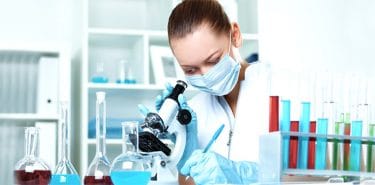
High creatinine levels
An elevation in the level of creatinine in the blood shows excessive creatine production in the body. There are many conditions that can lead to elevation in creatinine level:
Causes of high creatinine levels
- Chronic kidney disease: Any condition that impairs kidney function such as kidney failure, infection of kidney, decreased blood flow to kidneys. (1)
- Urinary tract obstruction: Blockage of the urine flow due to enlarged prostate or kidney stones (hydronephrosis).
- Dehydration: Renal damage that can be caused by severe dehydration. Low blood pressure caused by dehydration can also damage the kidneys.
- Protein overconsumption: Proteins and cooked meat contain creatinine; therefore, consuming excessive meat or taking extra protein through supplements can cause creatinine level to elevate.
- High-intensity exercise: Burning more creatine during high-intensity exercise for energy
- Some medications: Antibiotics such as trimethoprim and H2 blockers such as cimetidine
Furthermore:
- Autoimmune diseases such as lupus
- Goodpasture syndrome
- Gout
- Rhabdomyolysis (breakdown of muscle fibers)
- Muscular dystrophy
- Blood loss due to injury
- Hyperthyroidism
- Congestive heart failure
- Diabetes
- Seizures caused by eclampsia or high blood pressure caused by preeclampsia during pregnancy
- Glomerulonephritis, as the inflammation of the glomeruli
Risks of high creatinine levels
High creatinine levels indicate that creatinine is not filtered, not properly excreted from the body, and there is a problem in the kidneys. While high levels in infants are associated with bacteremia, it may be an indicator of prostate cancer in adult males. (2)
High creatinine symptoms
- Nausea, vomiting
- Fatigue, anorexia
- Frequent urination, dysuria-hematuria
- Hypertension
- Chest pains, muscle cramps
- Edema
- Dyspnea
- Dry skin
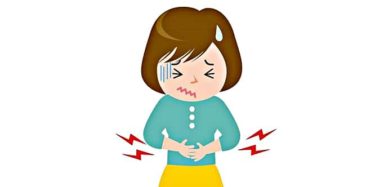
How to reduce creatinine level?
The best way to reduce the level is to treat the underlying cause. Many diets and lifestyle changes may also be helpful. Reducing red meat intake or avoiding high-intensity exercises may support the treatment.
If it is caused by acute or chronic renal damage, the level will not decrease until the problem is solved. If it temporarily elevates due to dehydration, high protein nutrition, the use of supplements, reversing the conditions will reduce the level.
What to eat to lower creatinine levels?
- Reduce protein intake: Red meat is a muscle tissue that naturally contains creatine. Cooking causes creatinine to break down. Choose vegetable proteins such as beans and nuts.
- Prefer fibre rich foods: Fibre rich foods help balance the digestive system and lower creatinine level. Herbal foods such as fruits, vegetables, seeds, whole grains contain fibre.
- Increase fluid intake: While excess fluid intake is a problem for those with kidney disease, dehydration can increase creatinine level. Drinking herbal teas, especially green tea, helps lower the level. If you have a problem drinking water, you can add some flavor with a slice of lemon or cucumber.
- Benefit from herbal teas: There are many herbs and herbal medicines with different benefits on the market. Natural diuretics such as dandelion, cinnamon, nettle, ginseng, golden marguerite, sage help lower creatinine level.
High creatinine treatment
If creatinine level is higher than normal range, the results are confirmed by another blood or urine test. If renal damage is concerned, conditions that can cause the damage are examined. Change in diet and lifestyle help lower the level, but the treatment of the underlying condition is the only way to keep creatinine level stable in the long term.
High serum creatinine in athletes
Many athletes and bodybuilders take creatine supplements to make their muscles more stable. Muscles use creatine for energy. If not used, it is converted into creatinine. Creatinine level may increase due to muscle damage resulting from high-intensity exercise in athletes. It is an expected and normal situation. (3,4)
Blood creatinine test
Creatinine can be tested via the blood and urine. Serum creatinine is the test for the amount in the bloodstream, while creatinine clearance is the test of the level in urine. (5)
Serum creatinine test
It is a blood test to measure the amount of creatinine in the bloodstream. Serum creatinine helps identify the glomerular filtration rate (GFR), an indicator of general kidney function. GFR is a calculation including creatinine, age, gender, and weight. (6)
Normal levels of serum creatinine in the blood
Serum creatinine level in females is lower than males as they have less muscle mass. Normal ranges may differ among laboratories. Generally it ranges from 0.6 to 1.2 mg/dL in males and 0.5 to 1.1 mg/dL in females.
Creatinine clearance test
It shows the amount of creatinine cleared out of the body or how well kidneys filter the waste. It requires a combination of urine test and blood test. As urine has to be collected over a period of 24 hours, it is usually done after evaluating serum creatinine test and calculating the GFR. (7)
The frequency of the test depends on the underlying conditions and the risk of renal damage. Regular testing is recommended in the following situations:
- Diabetes
- Hypertension
- Acute renal damage
- Cardiovascular diseases
- Other conditions that may affect the kidneys (kidney stones, enlarged prostate, lupus)
- Family history of advanced CKD or hereditary kidney disease
- Those who are on long-term medications that can affect the kidneys, such as lithium, non-steroidal anti-inflammatory medications, chemotherapy medicines, cephalosporin antibiotics.
Dangerous level of creatinine
Creatinine level is expressed in milligrams per decilitre (mg/dL) or micromol per litre. The normal range of creatinine in the blood may be 0.84 to 1.21 milligrams per decilitre (74.3-107 micromoles per litre). A GFR of ≥60 is considered normal and a rate of < 60 may indicate a kidney disease. A level of 15 or less is defined as kidney failure.
Low level of creatinine
Low creatinine levels may indicate that the liver or muscles are not working properly.
Causes of low creatinine levels
- Low muscle mass: The level of creatinine is often associated with muscle mass in the body, which may decrease with age or disease. Old age, excessive weight loss or muscle diseases such as myasthenia gravis, muscular dystrophy may lower creatinine level due to a resulting decrease in muscle mass. (8)
- Pregnancy: Increased urine production and excessive dehydration during pregnancy can temporarily cause low levels of creatinine, but it will reach normal levels after delivery.
- Liver problems: Creatine is produced in the liver and it is produced below the normal range due to poor liver function. In chronic liver disease, creatine production can decrease by 50%.
- Malnutrition: Although creatine is naturally produced in the body, the body also gets it from foods; therefore, low levels may be related to diet.
What does low level of creatinine mean?
In general, low level of creatinine shows insufficient production of it in the body. It may be an indicator of a problem regarding the muscles, liver, or may be the result of a temporary condition such as pregnancy and malnutrition.
Is low creatinine level dangerous?
It may indicate an underlying health problem, such as liver disease. However, it is usually part of aging or a temporary condition that can be treated with changes in diet.
Symptoms of low creatinine level
- Symptoms of low muscle mass include muscle weakness, difficulty in exercising, muscle pain, and reduced mobility.
- In the presence of liver disease, symptoms include fatigue, nausea, icterus, abdominal pain, swelling, bloody or tar-coloured stools.
- In problems with nutrition, dizziness and weight loss are observed.
Symptoms do not clearly indicate low creatinine levels in most cases. Symptoms vary depending on the underlying condition.
Treatment of low creatinine levels
If test results confirm low levels, additional tests are recommended to eliminate muscle diseases. A muscle biopsy or muscle enzyme test is performed to check for muscle damage. Treatment options depend on the underlying cause.
- Muscle disease: If you have a muscle disease, treatment focuses on reducing muscle pain, muscle weakness, and degeneration. Options include corticosteroids to increase muscle strength.
- Decrease in muscle mass: If the underlying condition is caused by a decrease in muscle mass, medical treatment may not be necessary. However, changes in lifestyle are recommended to increase your muscle mass. Increasing your physical activity level and exercising several days a week help increase muscle mass. If low muscle mass is caused by malnutrition or excessive weight loss, you should add protein rich foods to your diet.
- Liver disease: If low level creatinine is caused by liver disease, a medication should be administered and lifestyle should be changed. Proper diet and not using alcohol are among changes.
Creatinine level and kidney health
The body regularly produces a fixed amount of creatinine. The kidneys, on the other hand, are responsible for keeping the level in the blood within the normal range. Therefore, creatinine is a reliable indicator of kidney function. Each kidney has millions of small blood filtering units called nephrons. Nephrons constantly filter the blood through a very small set of blood vessels known as glomeruli. Toxins are stored in the bladder and excreted through urine.
An increase in creatinine level in the blood indicates that kidney function is impaired. It is one of many factors to consider when deciding on dialysis treatment when kidney function is very low. As kidney disease does not show symptoms in the early stages, people at high risk should be tested regularly. (9)
It is important to know how long the procedure leading to kidney dysfunction takes and whether the dysfunction is recent or not. It is easy to treat with early diagnosis. A serious infection can damage the kidneys or weaken the person’s bloodstream without a treatment.
Creatinine, creatine or keratin, are they the same thing?
Creatine is a part of the cycle that produces the energy needed for muscles to contract. It is an amino acid that helps supply energy to cells in the body, especially to muscle cells. The produced amount depends on the age and muscle mass of the body. It is found naturally in red meat and fish. It can also be obtained from supplements.
Creatine supplements are very popular among athletes who try to increase strength and muscle volume, especially among bodybuilders. It is the most effective nutritional supplement that can be used to adapt to high-intensity training.
When creatine is broken down for energy, creatinine is formed as a chemical waste. As almost all of creatinine is filtered by the kidneys and excreted from the body in urine, their blood levels are an indicator of kidney function.
Keratin is a fibrous protein. It is included in structures such as horn, nail, hair, skin, tooth, and it increases their endurance. Keratin filaments are very robust in structure.
Recommendations for creatinine problems
- If the level is elevated, the amount got from food and supplements should be limited.
- High-intensity exercises like weight training or resistance training may cause an elevation in the level. The harder the muscles work, the more creatinine remains in the blood; therefore, high-intensity exercises should be avoided.
- Mild exercises to increase muscle mass or dietary creatine intake can be especially helpful for those on a vegetarian diet who doesn’t consume enough protein.
- For people doing high-intensity exercise, creatine is generally considered safe as a dietary supplement.
- It is important not to leave the body dehydrated.
- Irregular sleep routine can put physical stress on the body entirely, causing the organs to work harder to function properly and lowering the kidneys’ ability to filter creatinine.
- Consuming too much salt may cause edema and hypertension, so the level may increase.
- Consult your doctor before taking any medicine.

